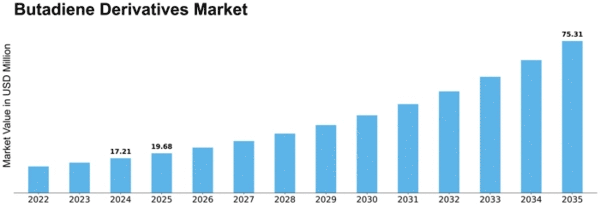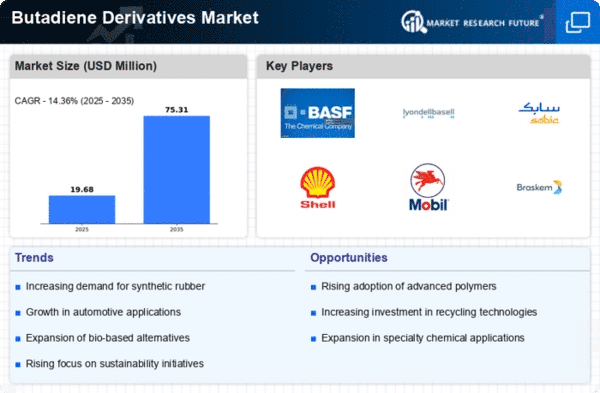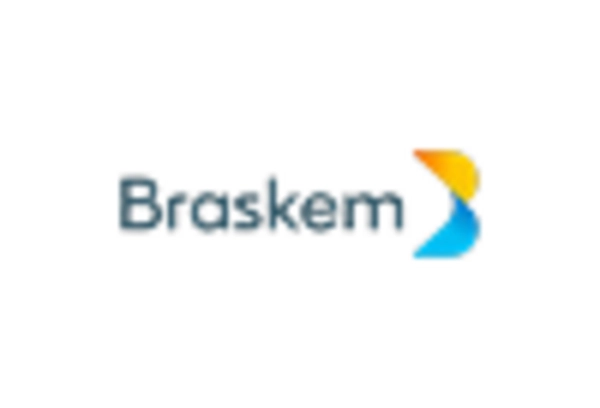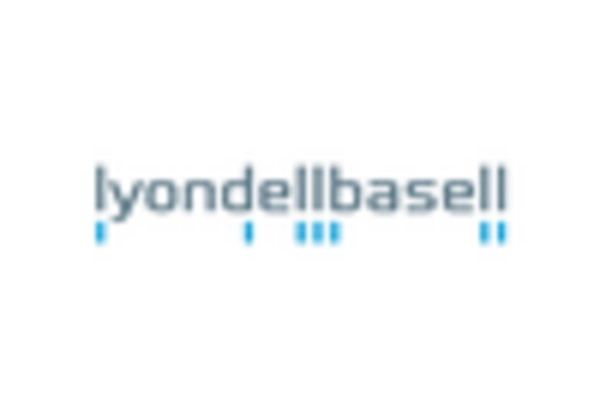Butadiene Derivatives Size
Butadiene Derivatives Market Growth Projections and Opportunities
Several market factors shape the Butadiene Derivatives Market. Global demand for synthetic rubbers, which use Butadiene as a basic material, drives this industry. Since synthetic rubbers are used in tires, belts, and hoses, the automobile sector drives this need. Vehicle manufacturing cycles directly affect Butadiene-based product demand, which can affect the Butadiene Derivatives Market.
Global economic conditions and industry operations also affect the market. Industrialization and economic expansion in emerging nations enhance demand for Butadiene and its derivatives. In contrast, economic downturns can lower industrial output and derivative demand. Butadiene Derivatives Market susceptibility to economic changes makes it vulnerable to macroeconomic developments.
Environmental laws and sustainability issues also shape market dynamics. Environmental awareness is rising worldwide, driving the creation and adoption of eco-friendly alternatives. The Butadiene Derivatives Market is shifting toward sustainability, driving producers to investigate greener production methods and eco-friendly product compositions. Butadiene derivatives manufacturers must innovate and invest in technology that reduce their environmental impact due to strict emissions and environmental laws.
The Butadiene Derivatives Market also depends on raw material availability and price. Butadiene is mostly made from crude oil and natural gas, therefore supply chain interruptions or feedstock price changes might affect the market. Supply risks from geopolitical events, natural disasters, and extraction technology changes can affect Butadiene and its derivatives prices and availability.
Technological advances also impact the market. The Butadiene Derivatives Market evolves via research and development to increase production techniques, product quality, and new applications. Catalytic, polymerization, and product formulation innovations can give market companies an edge, promoting industry growth and diversification.
Competitive environment and market structure also shape the Butadiene Derivatives Market. Market dynamics depend on manufacturer concentration, integrated supply chains, and strategic collaborations. Market actors must consider price competitiveness, brand reputation, and client needs to succeed in this competitive environment.



















Leave a Comment